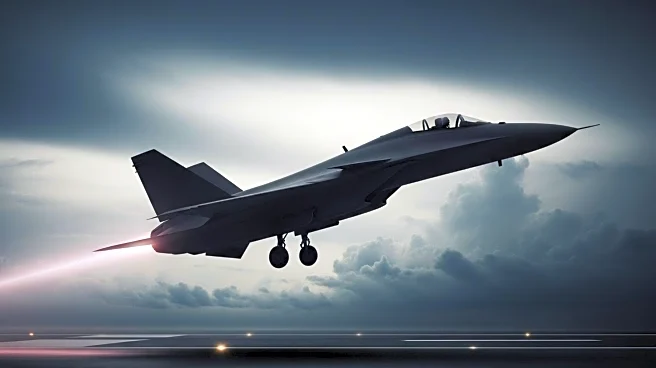What's Happening?
The United States is exploring creative solutions to reintegrate Turkey into the F-35 Joint Strike Fighter program, following Turkey's expulsion due to its acquisition of the Russian-made S-400 air defense system. The issue remains a significant obstacle to closer U.S.-Turkish defense relations, despite productive meetings between President Trump and President Erdogan. Various proposals have been suggested, including deploying the S-400 to Nakhchivan, an exclave of Azerbaijan, to satisfy U.S. and NATO concerns while maintaining Turkey's ownership of the system. The discussions aim to enhance bilateral defense cooperation and address geopolitical challenges.
Why It's Important?
Resolving the S-400 issue is crucial for strengthening U.S.-Turkish defense relations and enhancing NATO's strategic capabilities. Turkey's reintegration into the F-35 program would bolster its defense industry and improve interoperability with NATO allies. The situation also impacts regional security dynamics, as Turkey's defense decisions influence its relations with Russia and other neighboring countries. Successful resolution could lead to increased defense collaboration and support for Turkey's domestic defense initiatives, benefiting both U.S. and Turkish interests in the region.
What's Next?
The next steps involve negotiating a solution that satisfies all parties, potentially involving the deployment of the S-400 system outside Turkish territory. The discussions will require diplomatic efforts to address concerns from NATO allies and ensure compliance with international agreements. The outcome could influence Turkey's participation in future NATO initiatives and its role in regional security. The resolution of the issue is expected to be a topic of discussion at the upcoming NATO summit, with implications for transatlantic relations and defense cooperation.
Beyond the Headlines
The S-400 issue highlights broader geopolitical challenges, including the balance of power in the Middle East and the influence of external actors like Russia. The situation underscores the complexities of defense procurement and the impact of international alliances on national security decisions. The discussions also reflect the strategic importance of Turkey within NATO and its role in regional stability. The resolution of the issue could set a precedent for addressing similar defense-related challenges in the future, influencing global defense policies and alliances.









